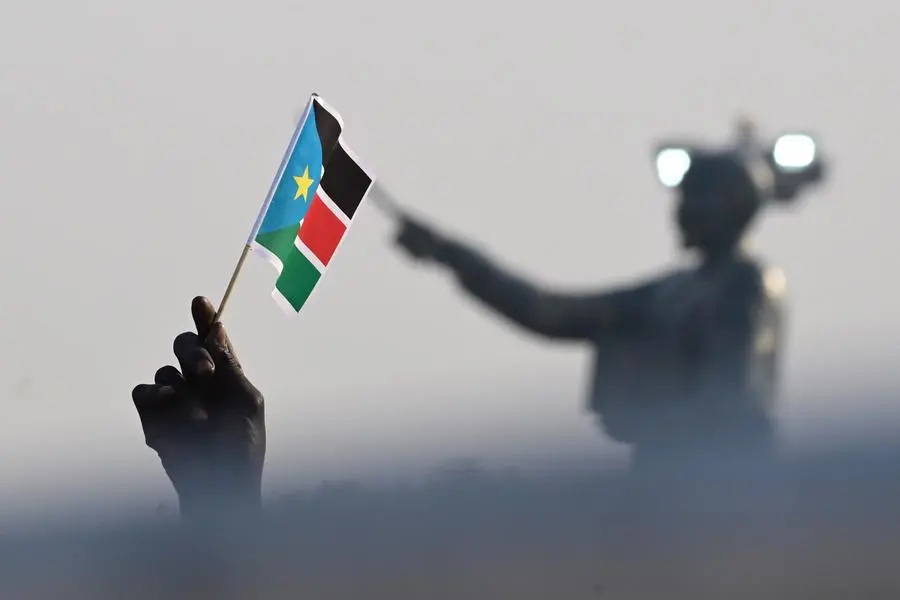PHOTO
The last time Malek Arol cast a ballot, it was in January 2011, when South Sudan held a referendum on independence from Sudan.
Now 31, the medical student is still waiting to vote -- with the first elections in South Sudan's history repeatedly delayed since a brutal civil war in 2013-2018.
"It means a lot to me because I am going to vote for a leader of my choice," Arol told AFP.
The world's youngest country is ruled by a transitional unity government established under a peace deal that ended the conflict between forces loyal to President Salva Kiir and his arch-nemesis Riek Machar.
But the relentless feuding between Kiir and his now deputy Machar has impeded implementation of the 2018 pact.
Elections, due initially in 2022, then 2023, are now set for December this year.
"We have no power as citizens. So if they postpone, we have no power. Our power is just to shout, to say elections must be carried out," said Arol.
- 'Listen to the voice of the people' -
With only eight months to go, the political rivals are still not in agreement on the polls, and little election infrastructure is in place.
"Whether the elections are going to happen or not depends on the political will of the leaders of this country," said Agustino Duku Ilario, a 65-year-old retired social worker.
"The people of this country have suffered a lot... even if we don't trust the leaders, they need to see the suffering of the people, they have to listen to the voices of the people."
Since independence, South Sudan has endured deadly conflict, climate disasters, economic malaise and political instability.
Nunu Diana Alison, a 36-year-old mother of five who works for a women's rights group, remains pessimistic.
"We don't have an electoral roadmap in place and we still have a shrinking civic and political space," she said.
"They have not given freedom to other parties to exercise their rights, the freedom of association, the freedom to campaign and also to do civic education for citizens across the country.
"It won't be a free and fair election."
- Another cycle of violence? -
Many in South Sudan want to see a reduction in the bloated government -- which notably has five vice-presidents -- and an end to financial mismanagement in the country, one of the poorest in the world despite significant oil resources, and one of the most corrupt.
"We have to go for elections and ensure that we move to a lean government where our resources can be able to cater for all government expenditures," said Alison.
Her views were echoed by Arol.
"If we were having one vice-president, the resources that are used for the other four offices will be used for other services."
The spectre of renewed conflict is ever-present.
"There is a political rope being pulled between the SPLM (Kiir's party) and the SPLM-IO (of Machar)," added Arol.
"This rope is very elastic and it will not break soon. But we expect violence at the end of the day.
"There are some people who have been waiting for elections to get chances to come to the government and who may become impatient. They may take up guns and do something stupid."
Ilario said the people of South Sudan must make their desire for peaceful elections heard.
"In the few months that are left, we need to make the leaders aware so that these elections may not take the country back to another cycle of violence."





















